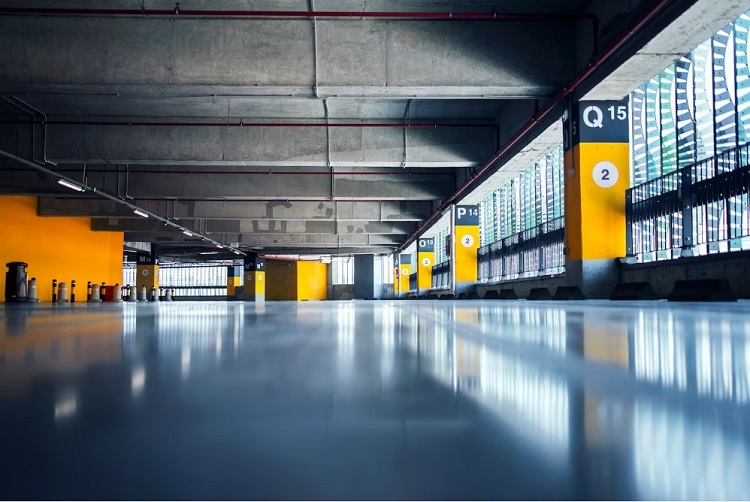
In Western countries, renting is more common, whereas Czechs prefer to own their piece of real estate. Over the past couple of years, owning real estate has become less realistic. The younger generation of people prefer higher flexibility, which makes renting apartments much more appealing to them.
Twenty-two percent of Czechs still live in their own home, but that trend is changing. Director of Creditas Real Estate Jiří Vajner states that “The need to own a house or apartment is strongly rooted in our country. However, the high prices of real estate and the high interest rates for mortgage loans make it fundamentally difficult to acquire your own real estate." In the survey the growing demand for rental housing shows that 82% of Czechs paying rent plan to live in rentals for a long time. Pricing is an important factor when considering which housing units to choose. Petr Dufek, Chief Economist of the Creditas Group said this was due to “The fact that the price increase that we see with the apartments in the current offer was not reflected in the existing contracts. More significant price increases occurred in energy, where four out of ten people saw prices rise by 10 to 25 percent, and a quarter saw these costs increase by more than 25 percent."
Most rental housing still consists of private rentals; however, developers have spotted a demand within the newly created situation. As Jiří Vajner states "People want quality and also the certainty of correct behavior for long-term rental housing. The share of institutional landlords will therefore increase." His company plans to develop over a thousand rental apartments in Prague and Brno. These developers realize location is also an important factor, This is especially true for the younger generation. Developers must find what they deem as “attractive” locations for these properties. A new project, called Pobřežní Apartments rental housing which is located on the intersection of Prague's Karlín and Florence. Most occupants prefer fully furnished apartments, which make it most comfortable for immediate occupancy.
This trend has been driven by the younger population of renters, and it is a strong preference for them in Prague specifically. The new project plans to offer 1+kk and 3+kk fully furnished apartments.
This trend has been driven by the younger population of renters, and it is a strong preference for them in Prague specifically. The new project plans to offer 1+kk and 3+kk fully furnished apartments.
The Ministry of Regional Development (MMR) has proposed changes to the conditions surrounding the construction of parking lots within the Czech Republic. Requirements for developers will change as a result of this, and they should have more ability to build parking spaces in their housing projects. Real estate experts predict that this new increase in demand for parking construction will lead to higher prices for housing in the future. MMR press spokesman Petr Waleczko explains that "It is necessary to take into account the fact that today there are 6,425,417 passenger cars in the vehicle register. If we don't want to have cars everywhere on the streets, we also have to deal with parking." A draft of the new MMR decree said one parking space should be created for apartments up to 70 square meters, and apartments of 100 square meters or more should have two parking spaces available for two cars.
Research from 2013 the Technology Agency of the Czech Republic (TAČR) shows that while the average size of apartments is decreasing, the number of vehicles on the road is increasing. Since then, availability of housing and costs of construction have both increased drastically. Costs for the construction of parking spaces can range from hundreds of thousands of crowns, and underground parking projects could cost millions of crowns. Juraj Murín, director of project development at Skanska Residential stated that "The cost of one parking space in our calculations today comes to roughly one and a half million crowns. The high construction costs associated with their construction make the construction of an apartment building more expensive."
Barbora Hejtmánková, architect of the University Center for Energy Efficient Buildings of Czech Technical University (UCEEB), says the need for parking depends on the proximity of a given property in relation to convenient public transportation. But she also agrees that with this new construction, there will be an unavoidable increase in prices of properties. Evžen Korec, owner of the development company Ekospol, explains that “In general, we build more parking spaces than we need to in our residential projects. The clients' interest in them is huge. We mainly build parking spaces above ground because they are significantly cheaper than parking in the basement." To keep overall construction costs down, developers could rework their original project plans to include smaller areas in the apartments, which would keep the number of parking spaces to a minimum. "For example, in Prague, the average size of apartments on offer has objectively decreased over the last 10 years. In 2014, it was 72 square meters and currently it is 62 square meters. This means a drop of 14 percent." Brož told SZ Byznys. There are sure to be changed to the parking spot decree before the final version is published.
The proposed MMR decree does not apply to construction in Prague. Prague would like to reduce the number of parking spaces for new housing developments, there would not be a minimum number of parking spaces, and the development of these would depend on the investor. The Prague municipality states that this would lower the prices of new and renovated apartments, which is different from the MMR proposal. "Reducing the minimum number of parking spaces will fundamentally affect real estate prices, which may drop significantly as a result," commented Petr Hlaváček, the first deputy mayor of Prague. Prague has set a different minimum, one parking space for 85 square meters, if the area is greater than 85, the number of stalls is increased to two. In Prague, two problems are combined, both expensive housing and a high number of cars. "If parking spaces in the projects were canceled in greater numbers, this could lead to a reduction in the overall prices of apartments. However, the question is whether the developers will actually reduce the number of parking spaces, because own parking spaces are one of the big advantages of new apartments. From the experience of our projects, we know that in most cases, clients require a parking space next to the apartment. That is why we already have a higher number of parking spaces in our locations than the standard imposes on us." confirms Ondřej Šťastný, Central Group's chief analyst.
In addition to reducing the parking minimum in an attempt to make housing more affordable, the Prague IPR is also considering economic regulation, more significant charging for parking, in an attempt to free up traffic on the streets of the capital. The office has collected comments on the amendment to the Prague Building Regulations and is waiting for the position of the new Prague management to deal with them. The amendment regulates the number of parking spaces in buildings throughout the entire area of the capital.
Source: newstream.cz, seznamzpravy.cz


